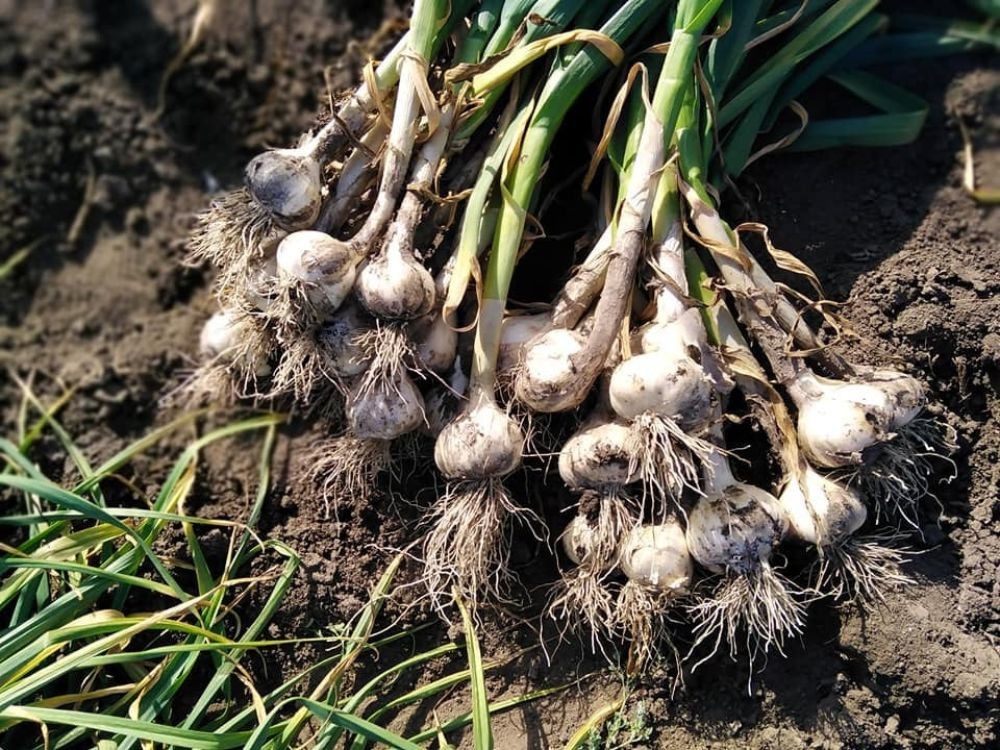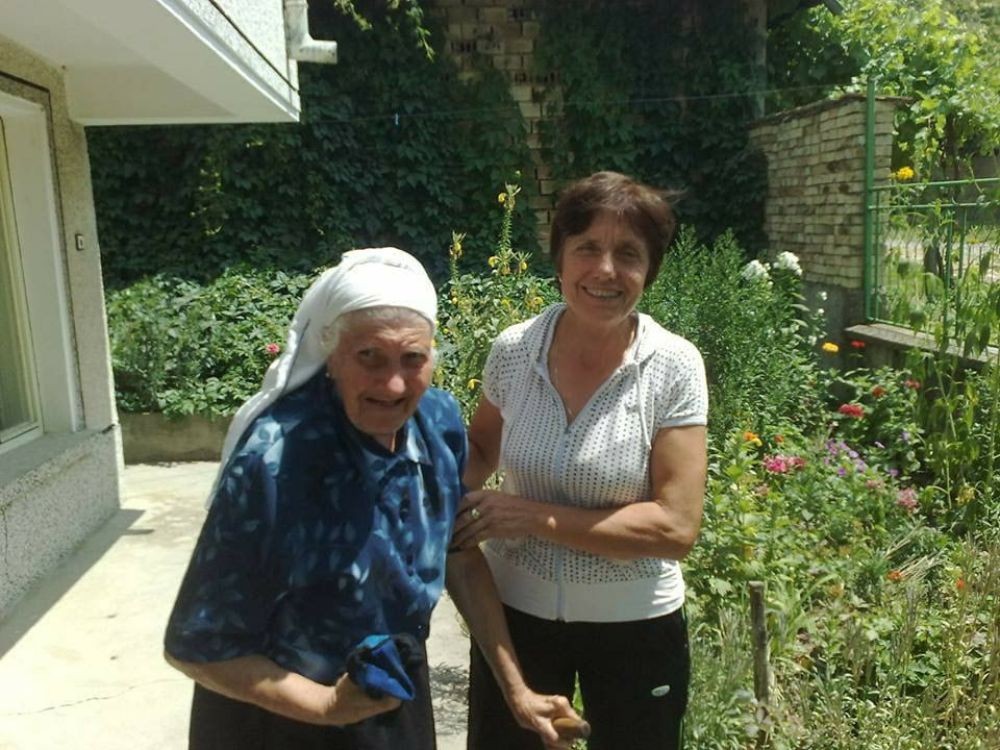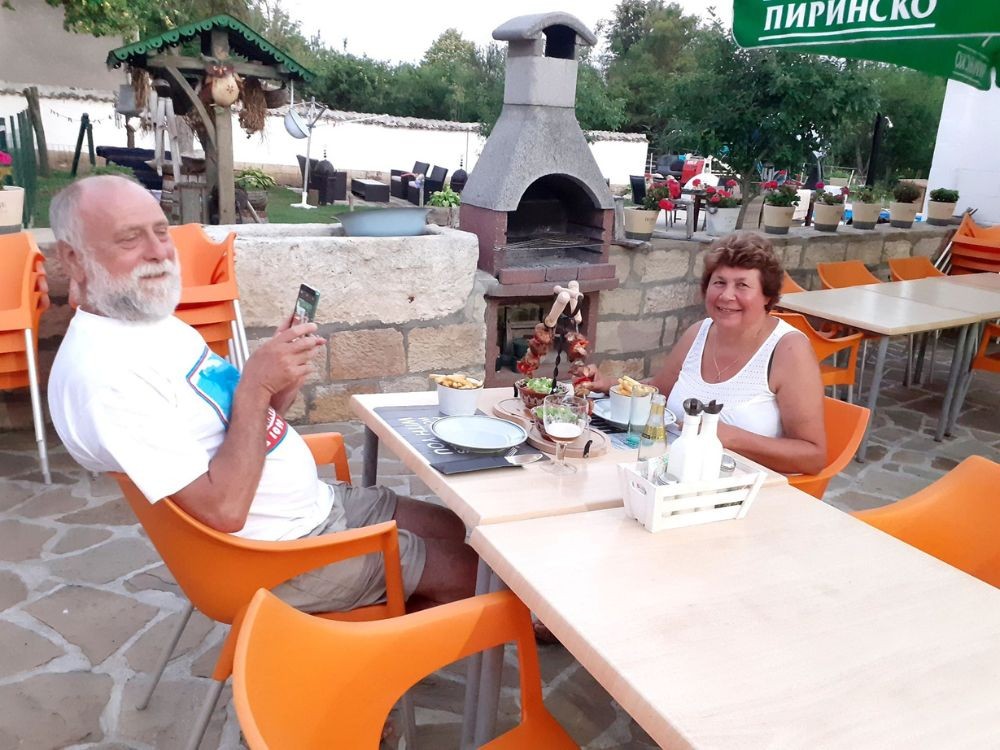Sadina village lies in Northeastern Bulgaria, in the region of Razgrad. There is a small community living here of the ethnic group Kapantsi, who are thought to be direct descendants of the Proto-Bulgarians of old.
To this day, the Kapantsi regard themselves as the oldest population in the Bulgarian lands. That is why the locals jealously guard their traditions, and they are connected with their lifestyle, their festivals, cuisine, and beautiful traditional outfits.
Sadina once had a population of more than 4,000. Now, there are 760 people living here. The livelihood here is mostly farming – the famed “Sadina garlic” is grown in the village.

But people also grow strawberries, raspberries, and keep bees. But there is another “trade” people from the village have come to rely on – rural and cultural tourism. The guests from the country and abroad are fascinated by the traditions and the way of life in the village.
“The most popular festival in Sadina, and in all towns in the vicinity, is Todorovden, when we honour the horsetail, and the Kapantsi fair “Sturdy roots, vibrant spirit” which we organize every other year. With the municipality’s ethnographic Kapantsi complex we endeavor to attract quite a lot of tourists, to show them the Kapantsi lifestyle, culture and cuisine,” says Mayor Hriska Todorova in an interview with Denitsa Koleva from BNR-Shumen.

In our day, Sadina is an international village, with different languages spoken here. People from other countries have come to live here – happy owners of homes and of land. They have been living fulfilling lives here for years, in harmony with the local community. Having come as tourists, for a break from the chaos of urban life, they feel attracted to the colourful lives of the Kapantsi:

“The sale of houses in Sadina started about ten years ago. A family with their own business came and settled here,” says Hriska Todorova. “They are from Belgium, and they started a restaurant. Kapantsi are always ready to give a hand to the foreigners who have come here. In 2020 this family were married in Sadina. We are now expecting one more family from Belgium, they too want to get married here. Most foreigners who bought houses here use them for tourism.”
As the foreigners started to arrive the village sprang back to life. The family from Belgium, the first to have settled here years ago, opened a restaurant, but it offers Belgian not Kapantsi food.

And so the representatives of the two ethnic communities got to live in harmony, enriching each other.
“And one more thing – they are a walking advertisement for Sadina with the restaurant, and with their way of life, and attract quite a few Belgians who buy houses here,” says Hriska Todorova and adds:
“They adopt our traditions, they really like the Kapantsi customs, our traditional dress. We always welcome them with a Kapantsi posy which is meant to ward off evil spells and is part of the traditional Kapantsi outfit.”
Besides foreign languages, there is one more thing you will hear more and more often in Sadina – children’s laughter, with many families from neighbouring towns moving here with their children in search of peace and calm, in harmony with nature, and a healthy lifestyle:
“What has been giving me pleasure is that Bulgarians from nearby towns like Ruse, Zazgrad, Popovo started looking to buy houses in Sadina. They say they love the nature, but also the Kapantsi culture and the hospitality. The young people in Sadina have started taking care of the place they live – of playgrounds and sports facilities etc.” says Hriska Todorova in conclusion.
More about expats from other countries who have chosen to live in Bulgaria:
Interview by Denitsa Koleva, BNR-Shumen
Text: Veneta Nikolova
Photos: BGNES, Facebook/Sadina garlic, Sadina village hall, Facebook/Hriska Todorova, Facebook/At Grandma's restaurant
Translated from the Bulgarian and posted by Milena Daynova
The Bulgarian minority in Romania marked a significant event with the official opening of the Bulgarian Inn in the village of Izvoarele (Hanul Bilgarilor), Teleorman County (Southern Romania)- a locality with Bulgarian roots dating back over 200 years...
The 14th edition of DiVino.Taste, Bulgaria’s leading forum for wines and winemakers, will take place from 28 to 30 November at the Inter Expo Centre in Sofia. Over 80 producers from all wine regions will participate, offering tastings of around 600 of the..
Minutes before the second and final reading, at the parliamentary budget and finance committee, of the state budget for 2026, the leader of the biggest party represented in parliament GERB Boyko Borissov halted the procedure and sent the draft bill..

+359 2 9336 661
